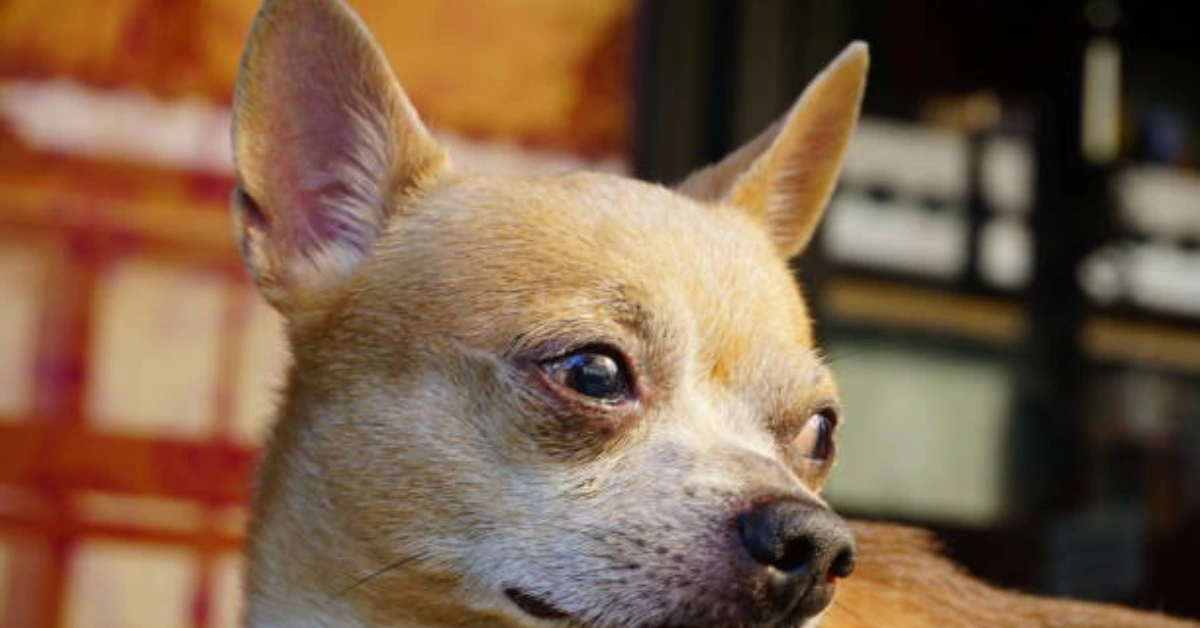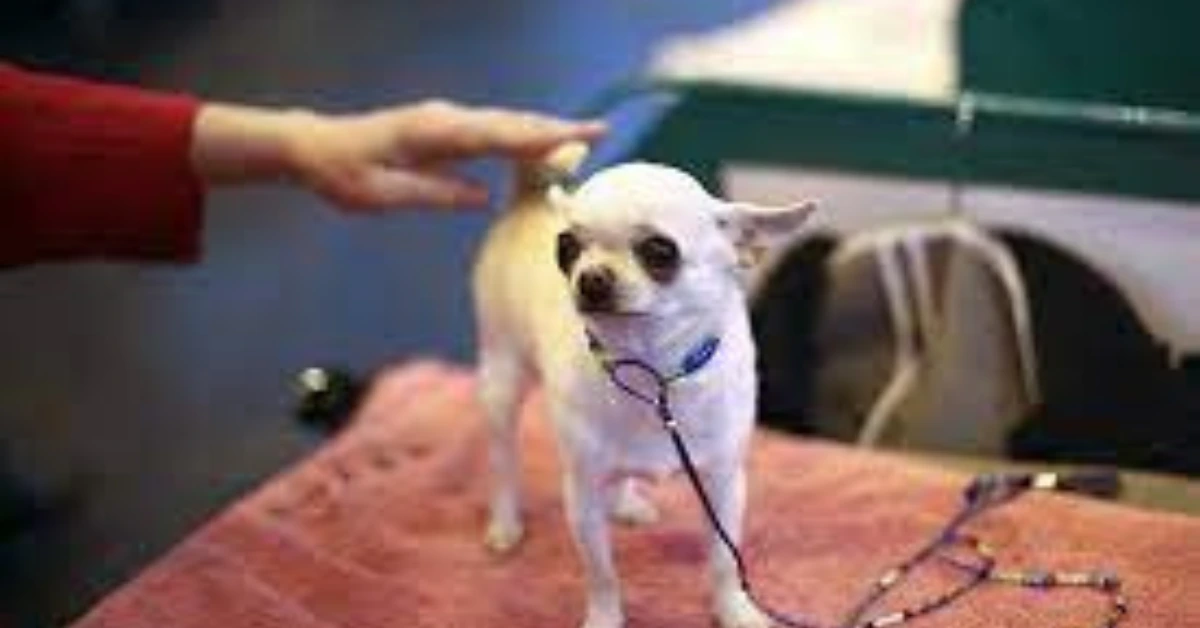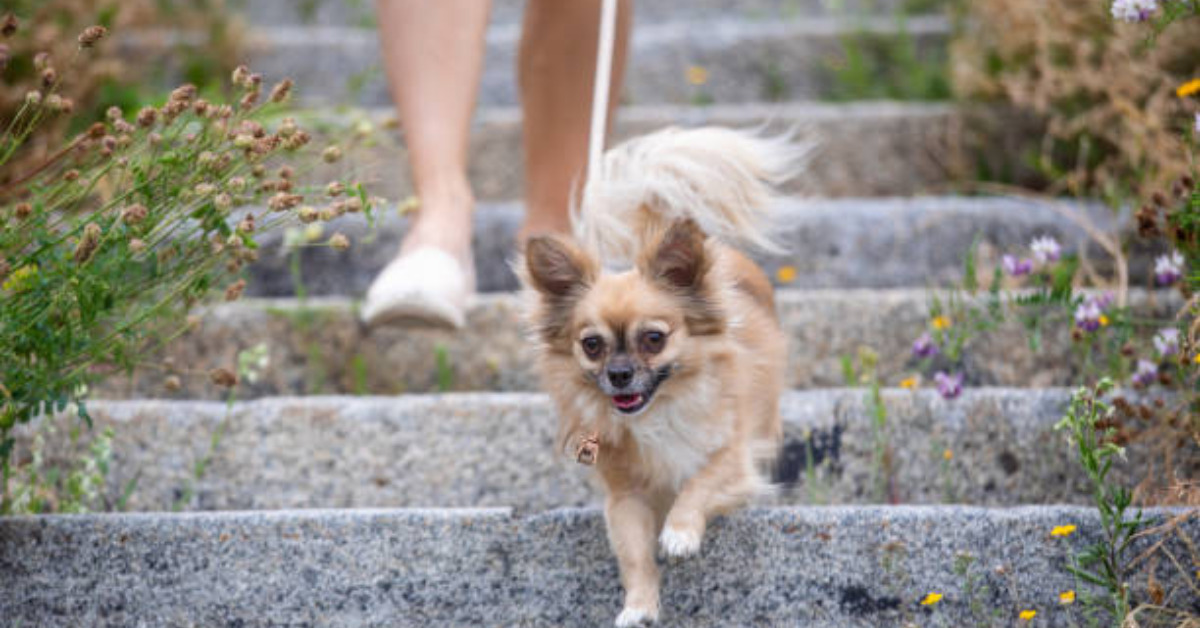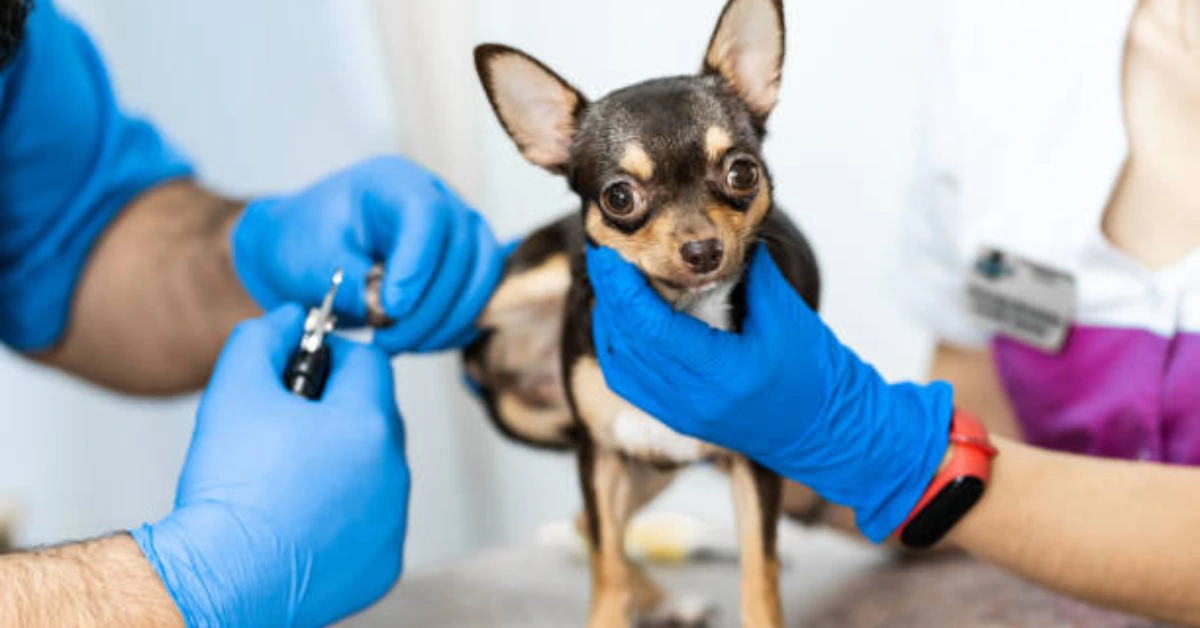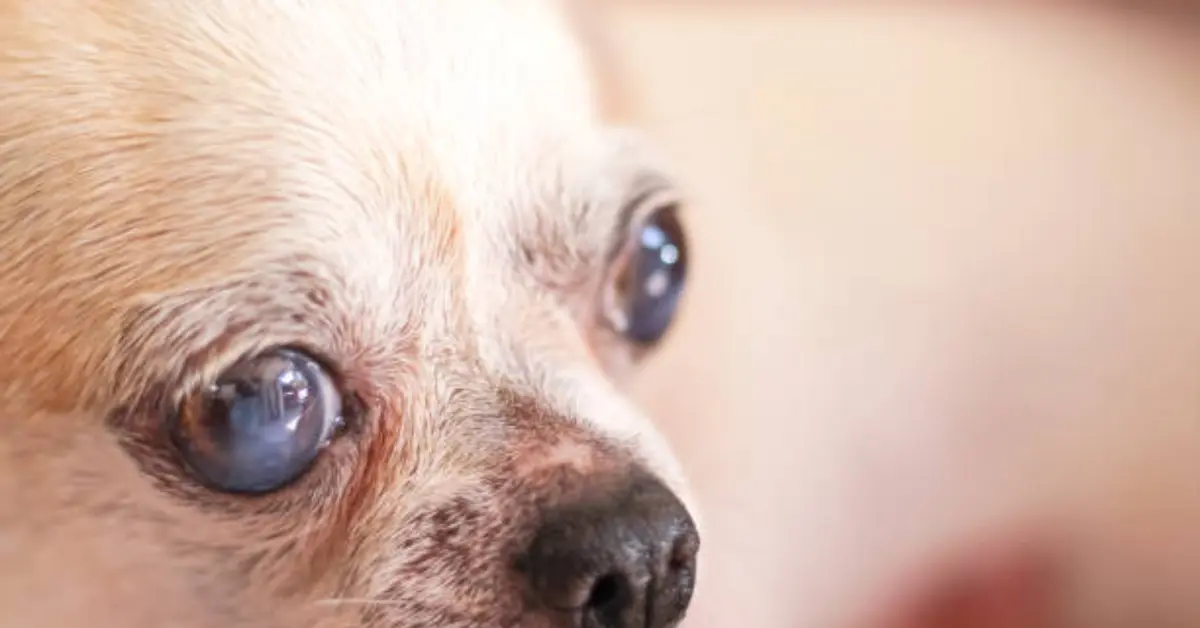It might surprise you that dogs can get dementia as they age because we typically only associate dementia with elderly people. The following section will respond to the most frequently asked queries about dementia in chihuahuas.
The Definition Of Dog Dementia
Dementia we see in aging humans and dogs is remarkably similar. Veterinarians and animal behaviorists frequently refer to this disorder as canine cognitive dysfunction in dogs. In contrast, owners commonly call it “dog dementia” because it causes cognitive decline in elderly pets.
Signs Of Dementia In Chihuahuas
The abbreviation DISHA, which stands for the following signs of canine dementia, is used in the veterinary field.
1. Interaction Changes
The way a chihuahua interacts with family and friends changes, which is one of dementia’s most prevalent symptoms.
Dogs suffering from dementia frequently become reclusive and stop requesting human attention. In extreme circumstances, chihuahuas can lose the ability to identify their loved ones.
Some canine dementia patients who once relished canine companionship may now have a strong dislike for canine company, even to the point of acting aggressively toward dogs and people they had once been comfortable with.
In addition to forgetting training commands, some chihuahuas with dementia may no longer respond to their name and may not comprehend their daily routine as well as they once did.
2. Disorientation
Disorientation can manifest in a variety of ways, but most frequently, chihuahuas become confused in familiar settings.
Chihuahua with dementia may:
- Lose themselves in their house
- Have trouble using the stairs, doors, or furniture
- Stare at the ceiling or the walls.
- Generally, act in a confusing manner
- Engage in habitual action, such as pacing.
3. Sleep Alterations
Chihuahuas with dementia may sleep more during the day and be more alert at night. Your chihuahua with dementia may wander aimlessly through the home at night, barking incoherently, and become easily startled by family members.
4. Activity Alterations
Usually, caretakers initially detect this symptom in doggie dementia patients when they become less active as a result of the changes they are going through. Because it is simple to mistake a decline in activity for normal aging, watching your chihuahua carefully can help you identify other dementia symptoms.
Dogs suffering from dementia frequently lose interest in eating and playing. Their typical behavior usually shifts; they can stop barking altogether, stop barking at all, or start barking more frequently for no apparent reason. They might also engage in repetitious behaviors.
5. House Soiling
Chihuahuas with dementia frequently have accidents within the home. They might not even ask to go outdoors and act as though they have never been trained to use the bathroom.
It’s vital to remember that a dog with dementia genuinely had an accident in the house, so you shouldn’t penalize them for it.
Can Chihuahuas Develop Dementia Suddenly?
However, the earliest signs of dementia or canine cognitive dysfunction may be so mild that they are simple to overlook if you are not paying attention to your chihuahua. As symptoms were present before the diagnosis, many dog owners mistakenly believe dementia struck abruptly.
Observation is crucial if you want to know how your chihuahua is doing. You might identify dementia symptoms by getting to know your dog well and observing behavioral changes. In general, you should strive to be more conscious of age-related changes when a dog reaches the middle of their breed’s lifespan.
Stages Of Dementia In Chihuahuas
Three stages of dementia are present:
1. Mild
Chihuahua owners may observe changes in how their dogs interact with them, as well as changes in their sleeping habits, confusion, and level of activity.
2. Moderate
Patients with moderate canine dementia frequently start needing specialist care for their symptoms, forget their housetraining, and become more active at night.
3. Severe
Extreme manifestations of the DISHA symptoms are present in patients with severe canine dementia, which makes daily life difficult for both the dog and their family.
Causes Of Dementia In Chihuahuas?
Although the substance that causes dementia in dogs has been identified by veterinarians, the reason it is there is still a mystery.
Dogs’ brains atrophy and change with age. Veterinarian research has found that an amino acid termed “Beta-amyloid,” which is “plaque” in the brain comparable to the plaque on teeth, has a detrimental effect on the transmission between neurons in senior dogs’ brains.
According to dogdementia.com, there is no known reason why beta-amyloid amino acids are present in dogs with dementia or cognitive dysfunction. Age is the sole factor that all patients with canine dementia have in common.
Dementia Treatment
Experts claim that dementia develops in senior dogs as they age and that there is no treatment for it.
Selegiline is a medication that can help with some of dementia’s side effects. Ask about this medication if your pet’s doctor diagnoses dementia.
Natural Treatments For Dementia In Chihuahuas
Dementia has no known natural cure, although there are a number of supplements that may be helpful, including SAMe, Denamarin, Solliquin, silybin, vitamin E, and Cholodin. Consult your veterinarian to determine the right dosage and whether these supplements are advised.
Some pet owners have also had some success with complementary treatments like acupuncture.
How long Can A Chihuahua live With Dementia?
When a chihuahua is diagnosed with dementia, the quality of life is more of a worry than the length of life.
Dogs with dementia frequently lead normal lives. Given that they frequently receive additional veterinary care, some dogs with dementia may even live longer than dogs without dementia.
Is This Experience Painful For My Chihuahua?
A dog suffering from dementia is probably not in any pain. Yet, the illness presents cognitive and emotional difficulties that have a significant impact on the quality of life that dogs enjoy.
Daily life becomes difficult due to confusion and disorientation brought on by dementia.
When should I Euthanize My Chihuahua?
The hardest choice you will ever have to make as a chihuahua owner is this one. The phrase “quality of life” is frequently used by veterinarians when speaking with dog owners about this choice.
The following quality of life considerations are the best approach to decide whether euthanasia would be the best course of action for your dog:
- Does your chihuahua appear content? Or does she exhibit depressed behavior?
- Does she still enjoy her typical favorite pastimes? Or perhaps she has lost interest in them?
- Is your chihuahua’s personality still the same? Or has she become more reclusive, “spacey,” and bewildered because of a personality change?
- Does your dog still desire food and liquids? Or is she denying herself food or liquids?
- Can your Chi walk on its own? Or is it unpleasant and difficult just to move around the house?
- Does your dog have normal breathing? Or does she stutter and gasp for air?
- Do you still recognize your dog, and does it still want to be with you? Or does she avoid connecting with you and prefers to keep to herself?
- Does your chihuahua know when you leave the room or any of her other favorite people? Or does she remain silent?
The Process
A veterinarian will calm your chihuahua down, make them numb to pain, and then turn off their brain and organs via humane euthanasia. If your dog is in pain, this is the sweetest thing you could do for him.
A veterinarian will calm your dog down, numb them to pain, and then turn off their brain and organs via humane euthanasia. If your dog is in pain, this is the sweetest thing you could do for him.
Never attempt to put a chihuahua to sleep at home or let a non-veterinarian or unlicensed veterinarian put a dog to sleep for you. It is not humane to be shot, strangled, poisoned, or subjected to any other treatment they may advise.
Although nobody wants to give up their dog, it’s crucial to think about whether your dog would suffer if a problem is treated over the long run. Are you preserving your dog’s life because you can’t let go yet? Or perhaps it’s because your dog is still their usual cheerful self and is not in pain?
If you are unclear about what is best for your chihuahua, your veterinarian can help you.
Should I Be Present When My Chihuahua Is Put To Sleep?
If you decide to put your chihuahua to sleep, you can decide whether to stay in the room or say your goodbyes and depart as the veterinary staff puts your dog to sleep.
Even though losing your dog is one of life’s hardest experiences, remember that you still have one more chance to shower your dog with the unwavering affection he has shown you his whole life.
Being in the room where your chihuahua can see you when they are put to sleep is the most compassionate thing you can do.
It is not the way your cherished dog should pass away. Your presence gives your dog one last consolation as you have been his solace throughout his life.
You should be aware that the description “put to sleep” is unrealistic if you fear seeing your dog suffer. It is not frightening for you to observe your dog falling asleep; it just happens.
Knowing that you put an end to your dog’s physical suffering and that you consoled him in his final moments can give you solace.
Last Word
Canine dementia also referred to as canine cognitive dysfunction, has such human dementia in many ways. Dogs with dementia are typically withdrawn and bewildered. Although there is no known treatment for this illness, in most cases a dog’s lifespan is unaffected.
The most significant effects of this ailment are a reduction in a dog’s quality of life and the requirement for family members to provide specialized care in order to maintain their comfort.
Schedule a visit with your vet or an animal behaviorist right away if you suspect that your chihuahua has dementia.
YOU MAY ALSO LIKE:
Cancer Risk in Your Chihuahua: Warning Signs
Advertisement

